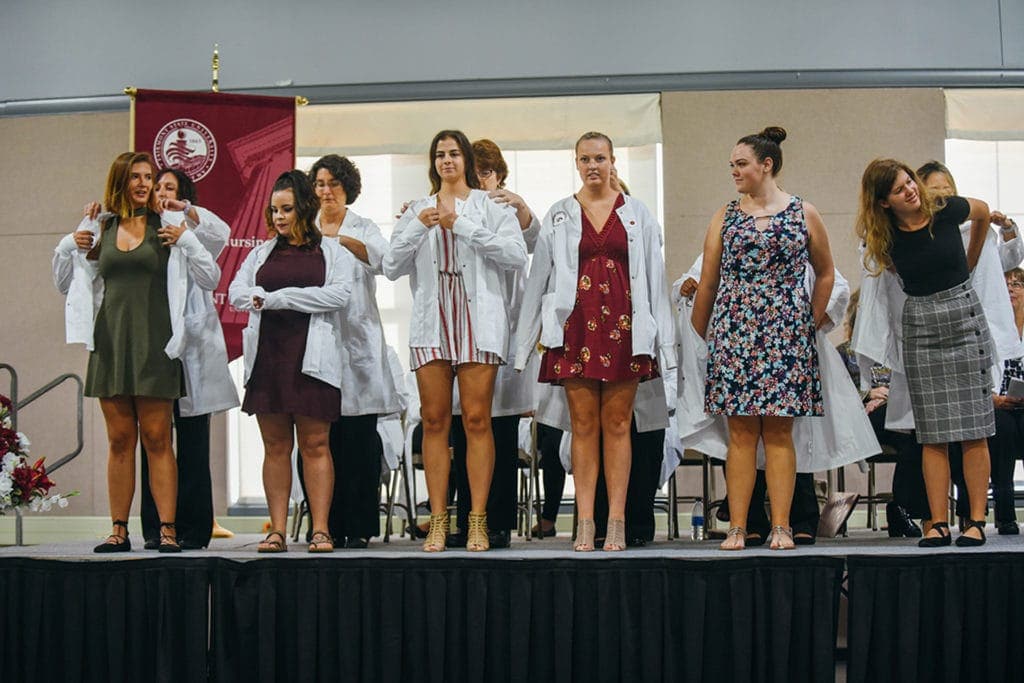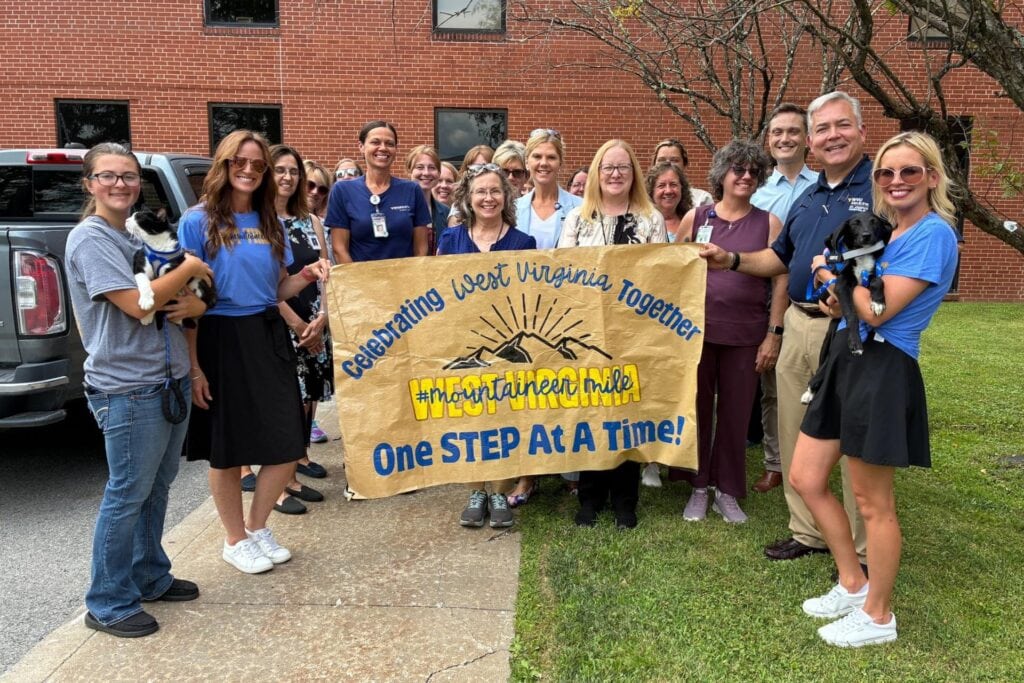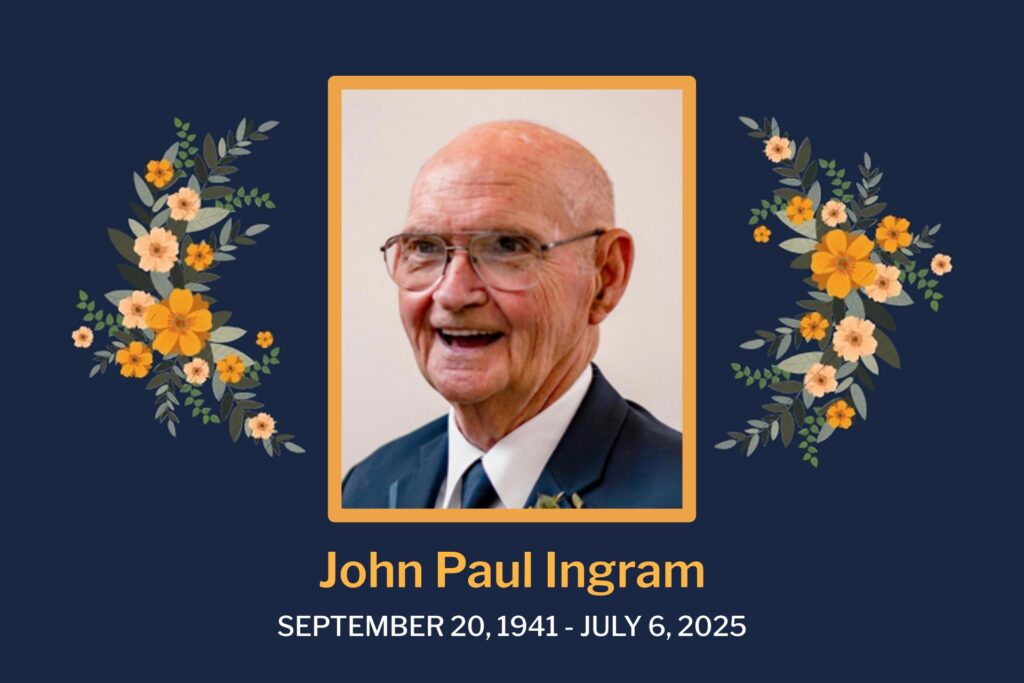Fairmont State University hosted its inaugural White Coat Ceremony for the School of Nursing as a new tradition to symbolize the move into clinical practice and providing compassionate care by nursing students.
Dr. Laura Clayton, associate dean for the School of Nursing, said the White Coat Ceremony was something she wanted to bring to the University because of the symbolic importance.
“This is an important event in their lives as they are transitioning from being a college student into the clinical professional role of a nurse,” she said. “This way we can begin to emphasize compassionate care from day one instead, where a lot of programs wait until the very end to start talking about compassionate care.”
Dr. Clayton noted that Fairmont State is currently ranked as No. 1 in the state for the Associate of Nursing program and many employers ask for the students when they have completed the program.
“Our employers ask for more and more of our students every day. When I talk to nurses out in the field, they tell me they can tell a difference in the Fairmont State students and that’s who they want to work with,” she said. “That’s what I’m proud of. Our program provides highly sought after graduates.”
President Dr. Mirta Martin said nurses are the lynchpin of the clinical setting and the ceremony creates a ritual to accentuate the important rite of passage from student to nursing professional.
“This marks the beginning of the journey you have chosen. During this journey you will begin to understand the true role of a nurse because of the caring, knowledgeable, and nurturing oversight of our nursing faculty,” she said. “These individuals have chosen to pass their gifts to each of you, hoping that their passion, wisdom, love for the profession will inspire each of you to continue the quest in making sure you finish it for one of the most noble professions we could ever have.”
The White Coat Ceremony was established by the Gold Foundation in 1993, with the first White Coat Ceremony taking place at Columbia University College of Physicians and Surgeons. Dr. Arnold Gold, who was a Professor of Clinical Neurology and Pediatrics at Columbia University, believed that physicians taking the Hippocratic Oath at the end of their medical training occurred too late and thus their education placed little emphasis on humanism, which should be encouraged from day one of their education.
Since that time the White Coat Ceremony has expanded to other healthcare professions. In 2014, recognizing the vital role nurses play in the healthcare team, the Gold Foundation partnered with the American Association of Colleges of Nursing to adopt a White Coat Ceremony for Nursing. This ceremony was supported by a grant from the Gold Foundation.
The white coat marks a student’s transition from pre-nursing to entrance into clinical nursing practice or for RNs who are continuing their education. The white coat symbolizes the nursing student’s vow to provide comprehensive and compassionate patient-centered care. The white coat is placed on each student’s shoulders by the nursing faculty who believe in the students’ ability to carry on the practice of nursing.
The White Coat Ceremony will conclude with the recitation of the Nurses Pledge. It is similar to the Pinning Ceremony which celebrates the student’s transition from being a nursing student into professional practice at the conclusion of their education.
Daphne Scoradto, Vice President for Patience Care Service at Mon Health Medical Center, served as the keynote speaker and assured the students that they “can do hard things,” but it will be well worth it in the end. Faculty presented 94 students with their white coats. Concluding the ceremony was recitation of the Professional Nurse’s Pledge by the students and all nurses in the audience.














